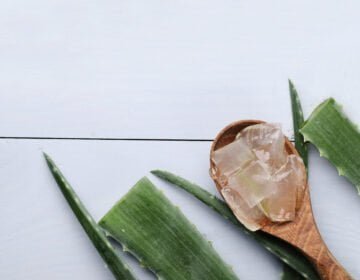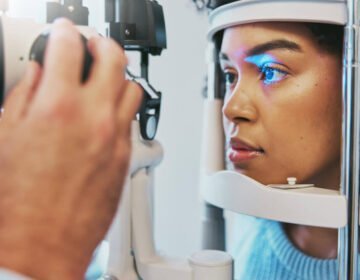
The Role of Nutrition in Eye Health
Nutrition plays an important role in maintaining overall health and our eyes are no exception. Our eyes depend on a range of nutrients to function perfectly and remain healthy throughout our lives. The foods we eat have a direct impact on our eye health, making our vision better and reducing the risk of various eye conditions.
In this blog post, we will explore “The Role of Nutrition in Eye Health” and delve into the connection between the foods we consume and our eye health. We will uncover the key nutrients, vitamins, and antioxidants that contribute to good vision and discuss their benefits for our eyes.
Understanding Eye Health
Our eyes are remarkable organs that allow us to see and experience the world around us. To appreciate the importance of eye health, it’s essential to understand the basics of how our eyes function and the factors that can impact their well-being.
Unfortunately, various factors can affect the health of our eyes. Eye conditions and diseases like glaucoma and macular degeneration can damage vision and decrease our quality of life. Additionally, external factors like prolonged exposure to UV rays, digital screens, environmental pollutants and unhealthy habits can lead to eye strain and other issues.
By understanding the importance of eye health and the various factors that can influence it, we can make good decisions and take necessary steps to protect our vision. In the following sections, we will explore the role of nutrition in promoting eye health and highlighting the key nutrients that support optimal vision and discussing the foods that provide these essential nutrients.
Key Nutrients for Eye Health
Proper nutrition plays an important role in supporting the health of our eyes. Some nutrients are very useful for supporting optimal vision and reducing the risk of eye conditions. Let’s explore some of these key nutrients:
Vitamin A: This nutrient is necessary for good vision. It helps to maintain the purity of the cornea, the outermost layer of the eye, and is essential for the production of rhodopsin which is a pigment that allows us to see in low-light conditions. Food rich in vitamin A include carrots, sweet potatoes, spinach, kale, and liver.
Omega-3 Fatty Acids: These healthy fats offer several benefits for eye health. They help to prevent dry eyes by the production of tears, which keep the eyes mosturized. Omega-3 fatty acids are found in fatty fish like salmon, tuna, and sardines, as well as in flaxseeds, chia seeds, and walnuts.
Lutein and Zeaxanthin: These antioxidants are highly concerned in the macula, a region of the retina responsible for central vision. Lutein and zeaxanthin act as natural filters, protecting the eyes from harmful blue light and reducing the risk of age-related macular degeneration and cataracts. Leafy greens such as spinach and kale, as well as other colorful fruits and vegetables like broccoli, corn, and oranges, are excellent sources of these nutrients.
Vitamin C: This powerful antioxidant helps protect the eyes against damage caused by free radicals. It is found in citrus fruits like oranges and grapefruits, as well as in berries, kiwi, and bell peppers.
Foods for Healthy Eyes
Eating a nutritious and well-balanced diet is essential for maintaining optimal eye health. Certain foods are particularly beneficial for promoting good vision and supporting overall eye health. Let’s explore some of the top foods you can incorporate into your diet for healthy eyes:
Leafy Greens: Spinach, kale, collard greens, and other leafy greens are rich in antioxidants, including lutein and zeaxanthin, which help protect the eyes from harmful blue light and reduce the risk of age-related macular degeneration.
Carrots: Carrots are well-known for their high content of beta-carotene, a precursor to vitamin A. Vitamin A is essential for maintaining good vision and supporting the health of the cornea. Consuming carrots can help protect the eyes from night blindness and other vision problems.
Citrus Fruits: Oranges, grapefruits, lemons, and other citrus fruits are excellent sources of vitamin C, which is known for its antioxidant properties. Vitamin C helps reduce the risk of cataracts and supports the health of blood vessels in the eyes.
Fish: Fatty fish like salmon, tuna, sardines, and mackerel are rich in omega-3 fatty acids. These healthy fats contribute to optimal eye health by reducing the risk of dry eyes, macular degeneration, and glaucoma.
Tips for Incorporating Eye-Healthy Foods into Your Diet
Ensuring that your diet includes eye-healthy foods is a great way to support and maintain optimal eye health. Here are some practical tips to help you incorporate these foods into your daily routine:
Plan Your Meals: Take the time to plan your meals in advance, including eye-healthy foods in each meal. Create a weekly meal plan that incorporates a variety of fruits, vegetables, whole grains, lean proteins, and healthy fats to provide a well-rounded nutrition for your eyes.
Snack on Fruits and Vegetables: Keep a bowl of washed and cut fruits and vegetables in your refrigerator for quick and easy snacks. Carrot sticks, cucumber slices, bell pepper strips, and berries make excellent choices for nutritious and refreshing snacks.
Explore Colorful Salads: Create vibrant salads using a mix of leafy greens, such as spinach and kale, along with colorful vegetables like tomatoes, bell peppers, and carrots. Add some protein-rich ingredients like grilled chicken, salmon, or chickpeas to make it a satisfying and nutritious meal.
Incorporate Fish into Your Weekly Menu: Aim to include fatty fish like salmon, tuna, or sardines at least twice a week. You can grill, bake, or pan-sear them and serve them with a side of steamed vegetables and whole grains for a wholesome and eye-healthy meal.
Conclusion
Maintaining good eye health is crucial for our overall well-being and quality of life. So, by understanding the importance of nutrition in our diet, we can reduce the risk of eye-related conditions.
In this blog, we provided practical tips for incorporating eye-healthy foods into your daily routine. Planning meals, snacking on fruits and vegetables, exploring colorful salads are just a few ways to make eye-healthy choices.
So, by prioritizing a well-balanced diet, adopting healthy lifestyle habits, and seeking professional guidance when needed. Remember, healthy eyes contribute to a brighter and clearer future. Take care of your eyes today for a lifetime of optimal vision tomorrow.
















